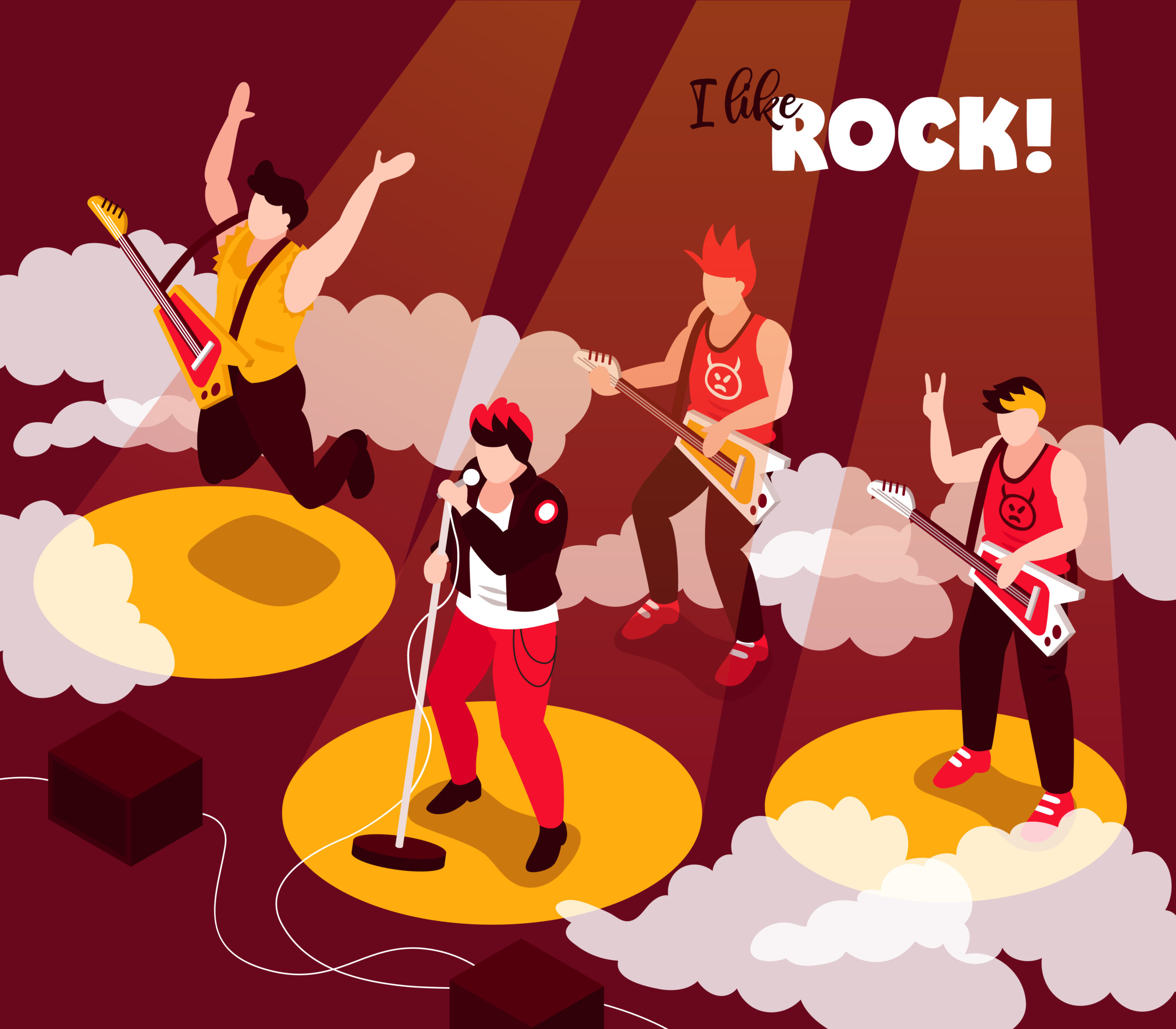Strap on your bell bottoms and crank up the air guitar! We’re embarking on a time-traveling adventure through the electrifying world of classic rock. From the psychedelic jams of the late 60s to the arena-filling anthems of the 80s, classic rock left an indelible mark on music history. Get ready to revisit legendary bands, iconic songs, and the cultural movements that fueled this unforgettable era.

Setting the Stage: The Birth of Classic Rock
The seeds of classic rock were sown in the mid-60s. Rock and roll, with its rebellion and youthful energy, was already a force to be reckoned with. However, a new generation of musicians emerged, yearning to push boundaries and experiment. They drew inspiration from blues, folk, and even classical music, creating a richer, more complex sound.
Pioneering bands like The Beatles and The Rolling Stones broke the mold. The Beatles’ early pop sensibilities evolved into groundbreaking psychedelic rock masterpieces like “Sgt. Pepper’s Lonely Hearts Club Band.” Meanwhile, The Rolling Stones embodied a raw, bluesy swagger that influenced countless bands to come.
Psychedelic Pioneers: Expanding the Musical Universe
The late 60s witnessed a psychedelic explosion. Bands like Jimi Hendrix Experience and Pink Floyd incorporated elements of Eastern music, sitars, phasing effects, and mind-bending lyrics to create a truly trippy soundscape. Their music became the soundtrack to a generation exploring consciousness and questioning authority.
Jefferson Airplane and Grateful Dead became staples of the burgeoning counterculture movement. Their extended jams and improvisational style fueled epic live shows, fostering a sense of community and shared experience among fans.
Hard Rock and Heavy Metal: The Rise of the Power Chord
As the 70s dawned, a heavier sound emerged. Bands like Led Zeppelin and Black Sabbath cranked up the distortion and introduced the power chord, creating a sound that was both powerful and menacing. Their music tackled darker themes, rebellion, and the occult, resonating with a disillusioned generation.
Deep Purple and Judas Priest pushed the boundaries of heavy metal further, introducing faster tempos, complex guitar riffs, and soaring vocals. These bands laid the groundwork for the metal explosion that would dominate the 80s.
Progressive Rock: Pushing the Boundaries
While some embraced the raw power of hard rock, others sought a more intellectual and artistic approach. Progressive rock bands like Pink Floyd (who continued to evolve), Genesis, and Yes incorporated elements of jazz, classical music, and concept albums that told elaborate stories. Their music was complex and layered, demanding repeated listens to fully appreciate.
Rush emerged as a progressive rock powerhouse, blending intricate time signatures with virtuosic musicianship and philosophical lyrics. Their unique sound continues to inspire musicians and fans alike.
Arena Rock Titans: Filling Stadiums with Singalongs
The 70s also witnessed the rise of arena rock. Bands like Queen, Kiss, and Van Halen prioritized catchy melodies, soaring guitar solos, and larger-than-life stage shows. Their music was designed to fill stadiums and ignite mass singalongs.
Foreigner and Journey delivered power ballads and anthemic choruses that dominated the airwaves. These bands brought a polished, radio-friendly sound to classic rock, appealing to a broader audience.
New Wave and Punk: A Reaction and a Revolution
By the late 70s, a sense of rebellion was brewing again. New wave bands like The Clash and The Ramones stripped down the rock sound, focusing on raw energy, social commentary, and a DIY (do-it-yourself) ethic. Their music served as a counterpoint to the perceived excess of arena rock.
Punk rock exploded with even greater fury. Pioneered by bands like the Sex Pistols and the Ramones, punk was loud, fast, and deliberately offensive. It challenged societal norms and gave a voice to the disenfranchised.
The 80s: Hairspray, Synths, and Power Ballads
As we entered the 80s, the sound of classic rock evolved once again. Synthesizers became a prominent feature, adding a new layer of texture and electronic energy. Hair metal bands like Mötley Crüe and Bon Jovi embraced a flashy image, catchy hooks, and power ballads.
Van Halen continued to dominate with the virtuoso guitar work of Eddie Van Halen, while Def Leppard incorporated elements of pop to create a commercially successful sound. Bands like Guns N’ Roses offered a grittier alternative, bridging the gap between hard rock and the emerging grunge scene.
Classic Rock’s Legacy: A Timeless Soundtrack
Classic rock’s influence extends far beyond the decades it dominated. Its impact can be felt in countless genres, from alternative rock to heavy metal and even modern pop. The spirit of rebellion, experimentation, and innovation continues to inspire musicians today.
Many classic rock bands continue to tour and record, attracting fans of all ages. Their timeless anthems are still played on classic rock radio stations and featured in movies and TV shows. These songs provide a powerful connection to the past, evoking memories and emotions for generations of listeners.
Beyond the music, classic rock fostered a sense of community. Fans bonded over their shared love for these bands, attending concerts and creating a unique subculture. This sense of belonging and shared experience continues to be a powerful aspect of music culture.
You can also read : Groove to the Top Pop Songs of 2024: Your Guide to the Catchiest Hits
Conclusion: A Final Encore
Classic rock isn’t just a musical genre; it’s a cultural phenomenon that continues to resonate today. It’s a reminder that music has the power to break down barriers, challenge norms, and bring people together. So, crank up the volume, dust off your air guitar, and join the journey through time with these legendary bands. The spirit of classic rock lives on, ready to inspire and entertain for generations to come.